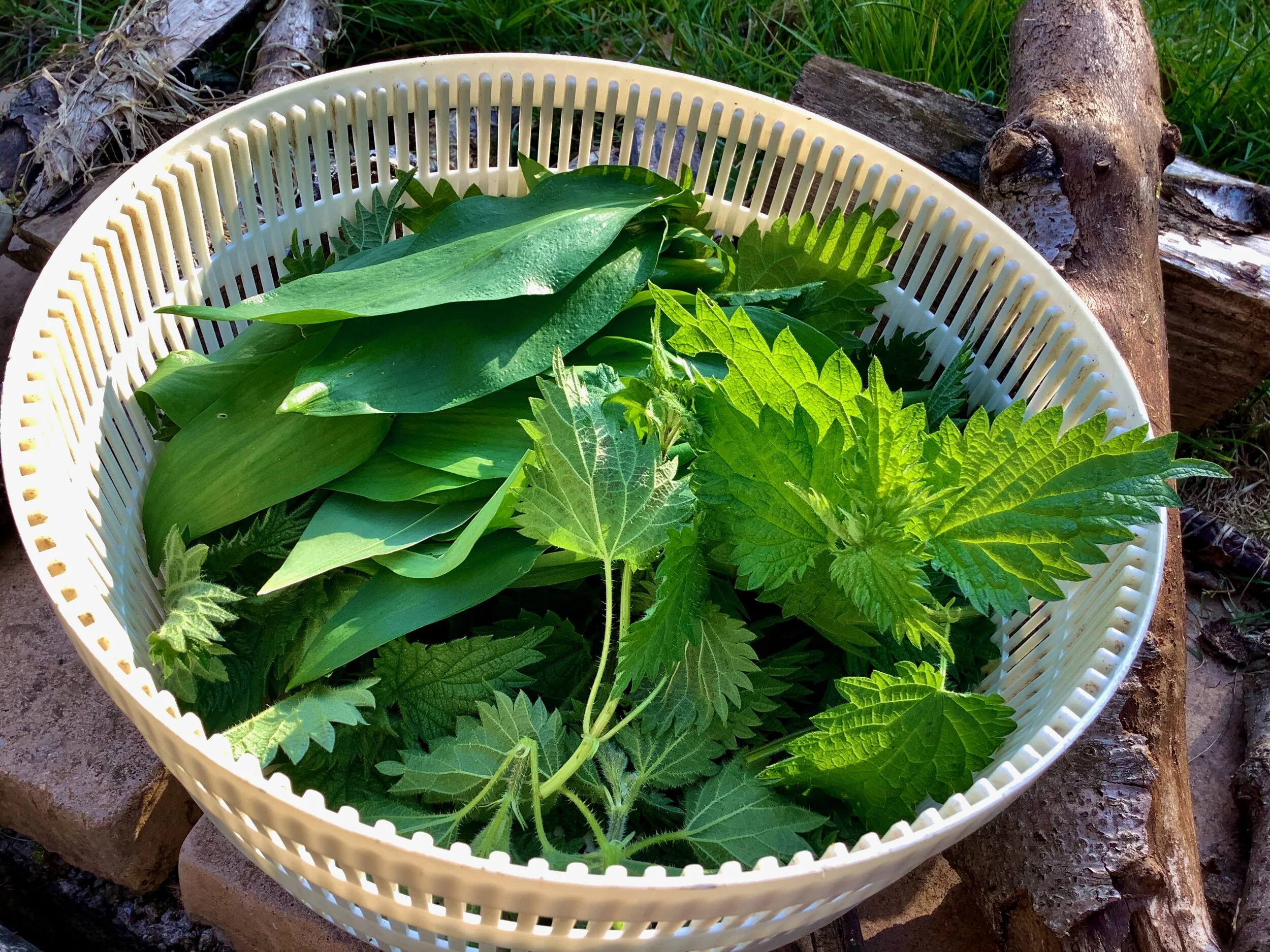Say Cheese And That Really Is Something To Smile About
If farmers all around the world looked after their soils better it would go a long, long way to solving our climate-change problems. It wasn’t a meteorologist or climate scientist who told me that, it was a Devon farmer.
If you get a bunch of passionate cheesemakers together, you are pretty much bound to witness a conversation that will go a long way beyond milk and its products. People who farm specially in a way that allows them or their colleagues to make artisan cheeses - and also the people who sell such choice dairy items - tend to be passionate and driven. Although their talk will centre on milk and cheese, it will also drift to the big bad world that surrounds their cows, curds, shops and farms.
Because ‘slow food’ items like artisan cheeses tend to embody an entire lifestyle and belief system. There’s no room for shortcuts or industrial quick-fixes. You must work with nature and respect the way it can change the flavour and quality of the milk and therefore the products you hope to produce. There’s no hurrying it. There’s no blasting it with chemicals to suit your profit and loss account.
And there’s no cut-price version which can be sold in big supermarkets under two-for-the-price-of-one offers or any other discounted promotions - a feature of the retail world nowadays which gets the goat of artisan cheesemakers because they believe it sells a cheap untruth to their entire industry.
These are things you learn when you gather a group of such people together - something I realised the other day when my colleague and friend Graham Harvey asked if I’d host a series of podcasts he’s producing in his perennial bid to promote a more considered way of farming and producing food.
With my another old friend James Crowden, we sat down at the marvellous Pebblebed’s Cellar in Topsham with Devon farmer and cheesemaker Mary Quicke and also Garry and Elise Jungenheim of Country Cheeses, which is a remarkable business that has outlets in Tavistock, Totnes and Topsham.
It was Mary who told us about the way in which well nurtured soils could help with climate change… “Humans control 38 per cent of the global land area as farming. Of that probably we control (the upper) 30 centimetres - and if you were to add just one percent of organic matter across the globe that would take 100 parts per million of carbon dioxide out of the atmosphere. And we are worried about 200!
“If you said to any farmer, ‘This is what we want you to do - put one per cent more organic matter into your soil’ - they would know how to do it.
“But actually it’s almost like the whole carbon discussion has been take over by industrial and capitalist solutions,” sighed Mary, whose cows graze outdoors for most of the year, ensuring that plenty of organic matter is being fed back to the soil. “Farmers are being seen as part of the problem, not part of the solution. It’s a bit embarrassing for high flown government scientists to go out and ask people in the fields to go and do what they know how to do.”
When the rest of us around the table showed amazement that just a small tweaking of farming and soil nurturing techniques could actually halve the problems behind climate change. Mary said: “It is true. I asked a climate-change scientist - are these numbers correct? He said they were. I asked, why aren’t farmers being asked?”
She was preaching to the converted with Graham Harvey, who has been writing about the importance of healthy fertile soils for years. And the Jungenheims said they are keen to tell this story to customers in their shops.
Elise said: “It is really important to paint a picture to our customers. We’ve seen such a change - we started 30 years ago and it was hard. It was just when people were starting to want to know more about their food - and that has grown and grown - and is a delight now. We get families in with their children - and they are all so interested.
Artisan cheesemaker in the Swiss mountains - Heidi Tritten makes some of the best cheese in the Alps
Garry had said earlier: “We feel blessed to be in the cheese industry - artisan cheesemakers are sound people and they are people who care about humanity. And it is always good talking about people you know and you respect. For us to talk about the cheesemakers is not a hardship - you are wanting the customer to know about this particular food. You are giving the information because you really want to.”
Mary had commented: “Given milk is so yummy, why would you bother preserving it? In the old days, cows would just be milked in the summer and this is how you got protein through to the winter. All I do is add bugs to ferment the lactose - I add some rennet and do some stuff - and out of those tiny processes all the amazing cheeses arise. It’s extraordinary.”
“It is a way of preserving the milk,” agreed James “Even in Ovid there are accounts of shepherds with sieves getting out the curd. I’ve seen it happen in the Hindu Kush - nomads putting the milk in a goat’s skin and churning it for hours until they’re getting the curd and using that as cheese. Also in the Himalayas, I have seen them drying it out on rocks while stopping ravens getting it. Once it’s dried it’s like biltong - and that’s a way of preserving it. It is how cheese evolved - how you preserve the flavours and the protein to get you through the hungry gap.”
Sharpham cheese
By now Mary was in her stride… “There are people going back to old recipes - people who are starting to ferment the milk in the way they used to with natural fermentations. It’s such a vital and exciting world. A very creative world. Especially if you look at America. They are going at it like a bull a china shop. When I first judged cheeses there nine years ago it was a bit boring, but last year there were so many exiting world class cheeses. Because milk is such a flexible thing - you can do the most amazing things with it.”
Garry joined in: “If you eat something, part of the joy should be the imagination that goes with it. Imagining this slab of whatever it is - imagining that it has come from a farm and people have actually put love and care and attention - artistry and alchemy - into the product… Suddenly it is marvellous. They are smelling it - looking at it.
Mary Quicke’s ‘cathedral of cheese” at her base in the Creedy Valley
“I want people to pick up cheese and rub it in their fingers,” he went on. “Because cheese is really sensual and you are losing out if you are just popping it in your mouth. People are getting really excited about what happens naturally - taking this substance on a little journey and nudging it to be something that is edible in a really lovely way.”
At this point Mary was able to get in her news about the creation of the Academy of Cheese: “People sell cheese with passion, but if we can sell cheese with knowledge - knowledge plus passion is inspiration. So we have created The Academy of Cheese - based partly on an American model - partly on a UK method of the sommelier programme ending up with a master of wine.
“It is very much based on tasting. Level One is 25 cheeses. Level Two is 100 in total… going up to Level Four, which will be our Master of Cheese. We’ve already had nearly 1000 people take Level One. You can take it on the internet and we’ve had people all over the world.
“But we have 10 training partners like Paxton and Whitfield who are training consumers as well as professionals. Other people do chefs - some doing cheesemakers or retailers. The idea is that we start creating this knowledgeable group of people who can go out and sell cheese.”
If you are interested in cheese check out https://www.quickes.co.uk/pages/academy-of-cheese and also watch out for Garry and Elise’s amazing Tavistock Real Cheese Fair which is a “ homage to artisan cheese and the artists who make it” staged in the town on the weekend of Saturday and Sunday 1o-11 August. Visit www.countrycheeses.co.uk to find out more.
Brief history of cheese
Perhaps as early as 7000 BC the hunters who were rapidly becoming became graziers, and realised that milk could solidify. By evening something happened to the milk they took out in their calf-stomach bags. They weren’t to realise there was a chemical reaction taking place between the milk and rennet, but it worked.
Later thistle flowers and green fig juice were used by Romans as rennet and soon ripening techniques were spreading throughout Europe.
The French word “fromage” has been used since 1180 when it replaced “formage” - from the slang latin “formaticus” or “made in a mould”. In 1267, in the Doubs region, an early form of dairy cooperative produced the first big wheels of cheese (Beaufort, Emmental, Comté).
By the 19th century, a huge dairy industry was thriving in France, and at the beginning of the 20th century, the first large factory opened manufacturing cheese.
In 1953, the Stresa Convention, ratified by France, Italy, Swiss, Austria, Scandinavia and Holland protected certain national sorts of cheese like Parmesan, Roquefort, Gorgonzola from counterfeiting. We didn’t join the club, which is why our famous cheddar is now made anywhere from Canada to Australia.
Mary Quicke (right) in discussion about cheese














